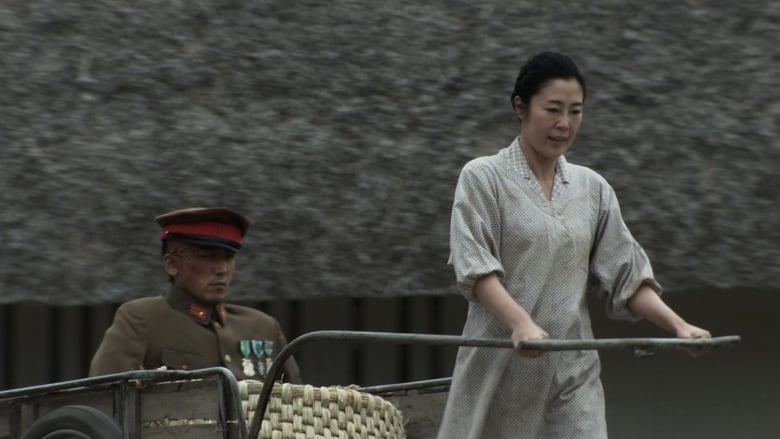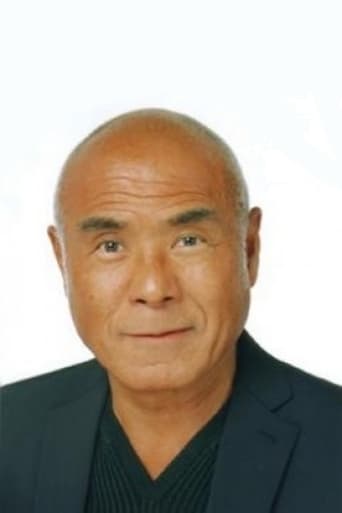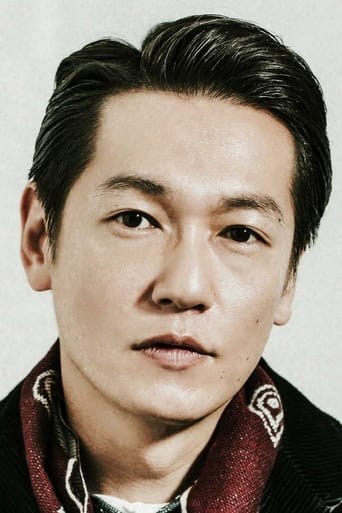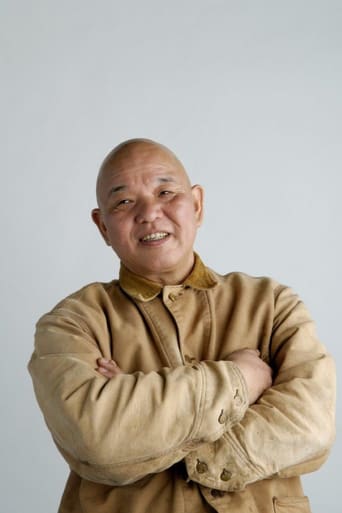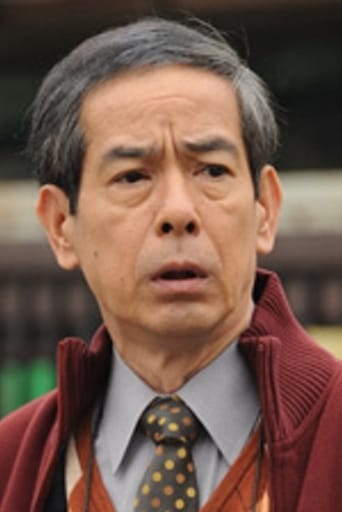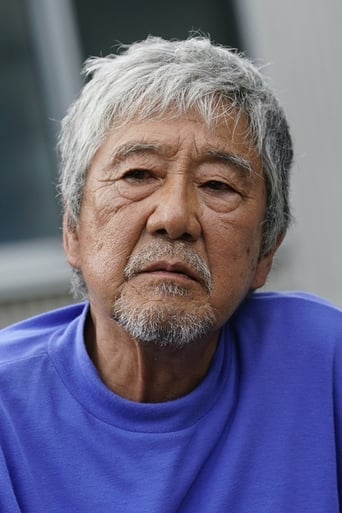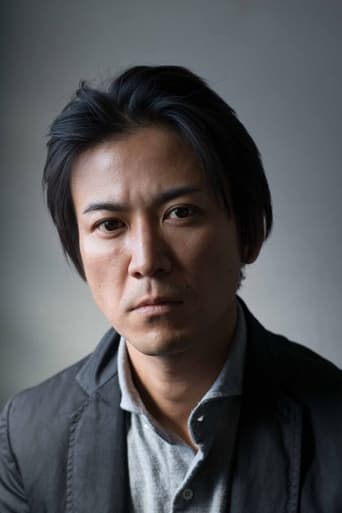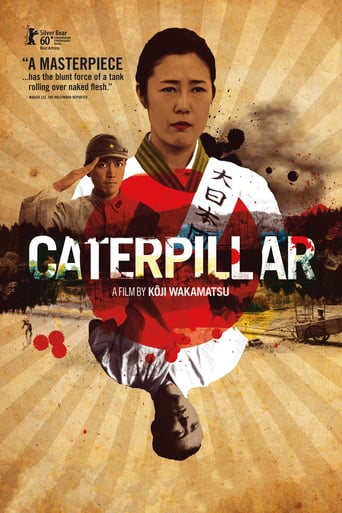
During the Second Sino-Japanese War, in 1940, Lieutenant Kurokawa returns home as a honored and decorated soldier but deprived of his arms and legs lost in battle. All hopes, from the villagers and women to close family members, turn to Shigeko, the Lieutenant's wife. She must honor the Emperor and the country in setting an example for all by fulfilling her duty and taking care of the 'god soldier'. Kurokawa prior to leaving to fight in the war regularly beat and berated his wife for her barrenness and inability to bring him a son. When he returns home as an amputee with no hearing and no speech, his wife dutifully attends to him, even though he shows little appreciation for her dedicated care. His main concerns are getting fed and getting sex. Even in his own degraded condition, he manages to berate his wife. Eventually, though, his own memories infiltrate and he is haunted by his horrible, sadistic deeds, performed while in the duty of the Japanese military.
Similar titles



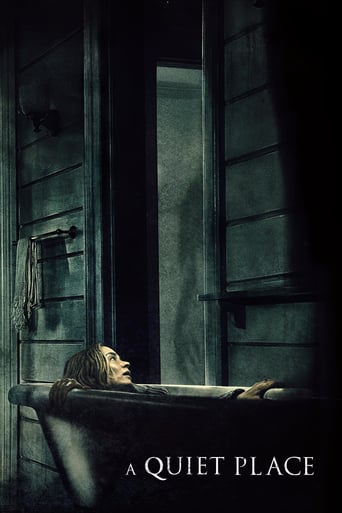

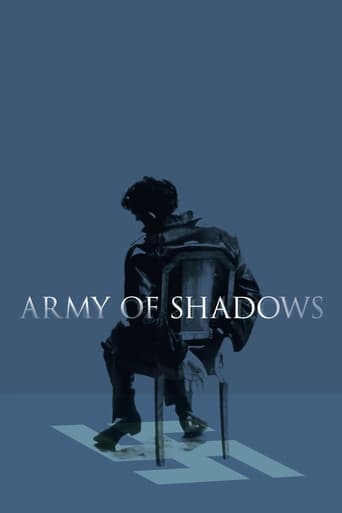
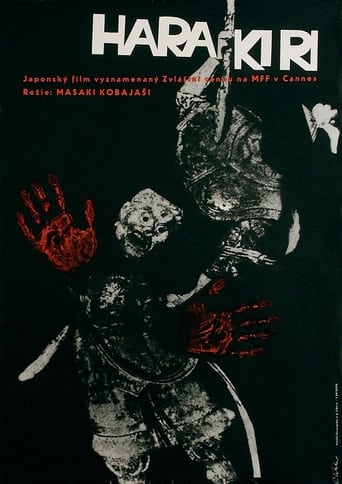
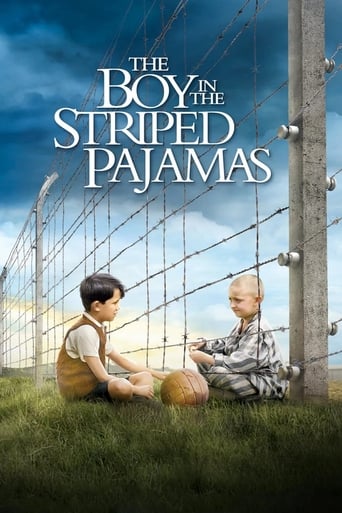
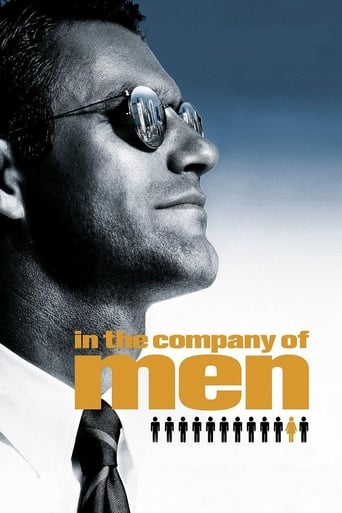
Reviews
Fresh and Exciting
This film is so real. It treats its characters with so much care and sensitivity.
It’s sentimental, ridiculously long and only occasionally funny
Actress is magnificent and exudes a hypnotic screen presence in this affecting drama.
Koji Wakamatsu's anti-war film Catepillar (2010) is notable for it's strong anti-nationalism stance and Shinobu Terajima's powerful performance as a long suffering wife dealt a poor hand in life (one in which she won an acting award at the Berlin Film Festival). Her husband is returned from war, as a "God of War" with decorations, without limbs, the ability to speak or hear. Her role as a good wife of a soldier of the Emperor's is to take good care of him-a thankless task for a man who only eats, sleeps, and demands sex from his wife. Furthermore, we learn that he was an abusive husband and has committed atrocities in the war in China. Wakamatsu is a member of that older generation and has an ax to grind-one that the nationalists of today wouldn't be so happy about either. It's a difficult film to watch, but perhaps necessary since most of the new generations are unaware or unbelieving of the atrocities committed at war by the Japanese in the name of the emperor due to whitewashing to history textbooks in schools.
The film is full of flashbacks, and one of the early ones was of Kyuzo and all the village dressing up for his departure from the village into the military.Most of the film takes place after Kyuzo is a veteran of the war between China and Japan around the time of World War II. He lost both legs and both arms in combat, his head is about 40% burned, and he is deaf. His speech is adversely affected by the lack of hearing.His wife Shigeko is horrified with this from the start. She tries to strangle him, but does not have the strength. The villagers honor Kyuzo and his achievements, such as they were, in China. They encourage Shigeko strongly to take care of the hero, the War God.Shigeko learns to deal with his eating, waste, bathing, and sexual functions. She takes care of him, which is an large daily effort, an enormous effort over an interval of years. She also works in the rice fields with the other villagers during the day.He tries to learn to write/draw with his mouth and pencil, starting with 'I want to do it.'She parades him around the village dress in uniform and medals. Sometimes she leaves him in the cart to watch her work in the rice fields.About half way through the film, she really gets into being the put-upon wife, and insists on his performing his responsibilities as well. She gets lots of attention for this, and he gets a taste of all the work (done by others) that he generates. Also, she becomes very conscious of the fact that he can no longer beat her. After some time in this steady state, Kyuzo starts having bad memories of what he did in China. Plus his obligations as War God never seem to go away.By 1945, the war started to come to Japanese soil. The radio in Japan reports something entirely different. Shigeko starts getting inwardly discouraged with the horrible things that have happened. Kyuzo has more flashbacks of his bad deeds in China.Toward the end of the war, she needs satisfaction, but he has trouble even being aroused, since he's too obsessed with the bad memories. She slings back in his face the horrible things he said to her before he left for war. At one point, just seeing the flame in their evening lantern brings back the memories of rotten things he did, and how he lost his limbs. This is when she sings a song about a caterpillar, which is what her husband reminds her of.-----Scores-----Cinematography: 7/10 Archival footage was in out of focus sepia; in other words, it sucked rocks.Sound: 8/10 OK, but not great.Acting: 9/10 Fine.Screenplay: 8/10 The story hangs together well. More cohesion about the flashbacks would have been nice.
Though he's not credited, this film seems to be based on a story by Edogawa Rampo, which has previously been adapted in the anthology film Rampo Noir. This film transports the story to the WWII era. Keigo Kasuya returns home from the Second Sino-Japanese War in 1940 a quadruple amputee - no arms, no legs - without the ability to speak. His wife (Shinobu Terajima) is reviled, but soon falls back into her position as loyal spouse. The film examines the patriotic fervor of the times - Kasuya is declared a "war god" and is worshiped by the locals. Privately, the couple's life is Hell. A power struggle arises between them, and Terajima - who before the war was a victim of abuse by her husband - realizes she has power that she didn't have before. The political aspects of the film are the most interesting part. The focus on sex - which was the main focus of Rampo's story - gets a tad boring after a while. Both leads are fantastic, particularly Terajima, who obviously has a lot more to do. The film could stand to look better - it was filmed digitally and transferred to film, and is very murky. All in all, it's quite good.
In premise, "Caterpillar" (the English translation of the title of a short story by masterful mystery author Edogawa Ranpo on which the movie draws heavily) may call to mind Trumbo's "Johnny Got His Gun", but whereas the latter dwells entirely on the slug of a man left from the battlefield, the former actually focuses on the wife who must care for and cater to a deified deformity of a husband. Director Wakamatsu walks the viewer through the war with newsreel footage and announcements from the "Daihonei" Imperial Headquarters, which duped the public into thinking their forces were winning victory after victory. There is also the text of the article prohibiting capture or surrender from the "Senjinkun" (Combatants' Code), which was distributed to all soldiers in early 1941 under the name of Hideki Tojo, and was a key factor behind the suicidal attacks and just plain suicides (voluntary or compelled) by Japanese soldiers throughout the war. Kurokawa (the husband) comes back limbless and mute, but there is nothing wrong with him downstairs, as his hapless wife soon discovers. There ensues a kind of sexual warfare between the two, portraits of the emperor and empress solemnly gazing down at the lurid scenes all the while, that lasts as long as the war. I took Kurokawa's attempted suicide as an attempt to end his personal torment, not as a sign of repentance for his own crimes per se. No one saves or is saved in this flick.After the intense fixation on the couple and the rural home front, the A-blasts and war's end seem to break the spell, and the film embraces a more general anti-war sentiment. I felt this diluted the impact, but audiences (especially those in Japan) will do well to ponder the figure of 20 million on the screen at the film's end for the estimated WWII death toll in Asia alone.Shinobu Terajima turns in a bravura performance as the wife (though she looked laughably incongruous standing in a rice paddy, farming implement in unaccustomed hand, her fair and flawless complexion shining under the sun - far cry from a sun-beaten peasant- woman!), and Shin Onishi, a creditable one in a difficult role.Wakamatsu again showed courage in making this film, as he did with "United Red Army". I guess this is why mention of his name often elicits groans in Japan. He must be doing something right.
Top Streaming Movies











